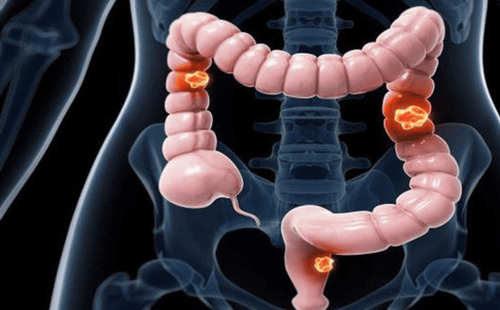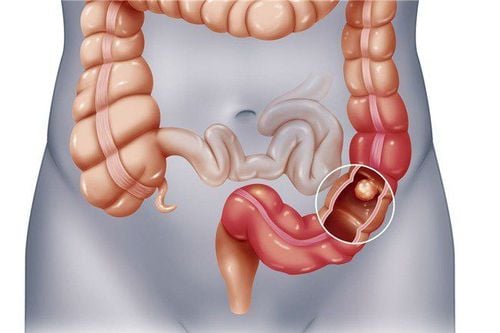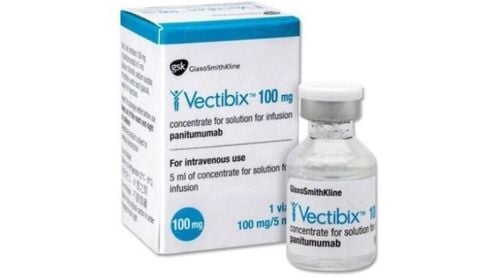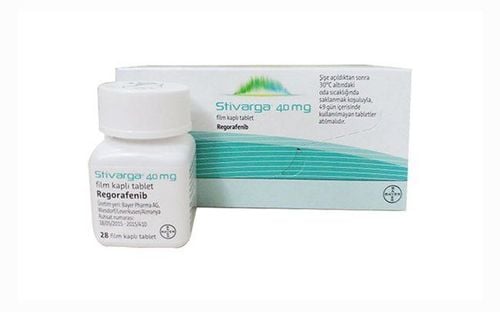This is an automatically translated article.
Post by Master, Doctor Mai Vien Phuong - Head of Department of Gastrointestinal Endoscopy - Department of Medical Examination & Internal Medicine - Vinmec Central Park International General Hospital
Gastroenterologists can and should guide colorectal cancer survivors in lifestyle choices to reduce the risk of recurrence and death from the disease. So what can you do to increase your survival time after cancer treatment?
1. Some recommendations after colorectal cancer treatment
At the 2021 Gastrointestinal Cancer Symposium, Susan Urba, MD, a professor emeritus in the Department of Hematology/Oncology at the University of Michigan, in Ann Arbor, presented what clinicians Clinicians can tell their patients have recovered from colorectal cancer.
“CRC cancer survival offers teachable moments,” says Urba. "The doctor's recommendations at this point carry considerable weight for our patients."
Carol A. Burke, MD, vice chair of the Department of Gastroenterology, Hepatology, and Nutrition at the Cleveland Clinic in Cleveland, and head of the polyposis division at the Sanford R. Weiss Polyclinic Colonic Center agreed. “The diagnosis of colorectal cancer hits a patient's mind, body, and soul. Gastroenterologists have the role of a healthy lifestyle coach for their patients, and this role is not limited to our colorectal cancer patients,” she said. .
As Burke pointed out, many diseases common in Westerners, including colorectal cancer, are related to lifestyle. Four healthy behaviors can help prevent colorectal cancer and reduce the risk of poor outcomes after diagnosis: maintaining a normal body mass index, avoiding smoking, participating in recommended levels recommendations of aerobic exercise, building muscle and eating a plant-based diet low in animal fats and processed foods, she says.
2. The benefits of exercise
Many randomized trials have evaluated the benefits of exercise in cancer patients and most have found an association with quality of life, recurrence, and cancer survival. For this reason, Urba says she advocates for a paradigm shift in the care of colorectal cancer survivors: “Ask about their activity levels.”
In a meta-analysis of 49,000 colorectal and breast cancer survivors, physical activity had a dose-related effect on survival after a colorectal cancer diagnosis. (Ann Oncol 2014; 25: 1293-1311). The reduction in risk of death ranged from 15% for 5 hours of metabolic equivalent [MET] exercise hours to 38% for 15 hours of MET per week.
Similarly, a 16-year longitudinal study found that greater physical activity before and after a colorectal cancer diagnosis was associated with lower mortality, while more sedentary time was associated with lower mortality. associated with a higher risk (J Clin Oncol 2013; 31:876-885), Urba says.
Another type of activity that is recommended is resistance training, especially for patients who have lost bone density or muscle function during treatment. She adds that resistance training can improve balance and reduce the risk of falls.
Evidence in support of exercise has been found in the National Comprehensive Cancer Network (NCCN) guidelines: 2.5 to 5 hours of moderate-intensity exercise per week (less if exercise) vigorous exercise) or two to three sessions per week of resistance training. “But recommendations for even mild activity can improve function in patients who cannot or do not exercise at a moderate level. It's important to avoid a sedentary lifestyle," Urba said.

3. Nutrition, weight management is very important
The National Adjuvant Bowel and Surgery Project evaluated the association between BMI and outcome in two randomized trials of adjuvant chemotherapy with 4,288 colorectal cancer patients (J Natl Cancer Inst 2006; 98). : 1647-1654). Compared with normal weight individuals (BMI, 18.5-24.9 kg/m2), very obese patients (BMI = 35 kg/m2) have an increased risk of colorectal cancer recurrence or a 38% higher risk of a second primary cancer, a 36% increased risk for colorectal cancer-related mortality, and a 28% increased risk of dying from any cause.
“The authors note that the risk of colorectal cancer recurrence and death is similar to the magnitude of the difference in prognosis for patients treated with surgery alone versus surgery plus chemotherapy. adjuvant in previous clinical trials”. "We need to take weight seriously and talk to our patients as if achieving a healthy weight is a treatment," Urba says.
Not only obesity but also diet that contributes to it is linked to outcomes after a colorectal cancer diagnosis. In an adjuvant chemotherapy study that included 1,000 stage II/III colorectal cancer patients, the Group B Cancer and Leukemia trial group queried patients during and six months after adjuvant chemotherapy. (JAMA 2007; 298: 754-764). Patients in the highest quintile of the Western diet (red meat, fat, refined foods, desserts) compared with the lowest quintile had a higher risk of colorectal cancer recurrence and cancer-related death. double or triple colorectal cancer. Patients whose diets reflect a high glycemic index also have poorer disease-free, relapse-free, and overall survival (J Natl Cancer Inst 2012; 104:1702-1711).
Red and processed meats have been specifically investigated in the American Cancer Society's Cancer Prevention Nutrition Study Group II (J Clin Oncol 2013; 31:2773-2782), which examined preparation diets of 2,315 people diagnosed with colorectal cancer, 1,186 of whom were followed up for up to 16 years. Eating more red meat (highest versus lowest quartile) both before and after being diagnosed with colorectal cancer increased the relative risk of colorectal cancer death by 1.79.
Urba says: “The NCCN dietary recommendations include eating plenty of vegetables, fruits, whole grains, fish, and poultry, while limiting the bad stuff, including red meat, and processed foods. and road.
The evidence is less clear that any dietary supplement protects against cancer recurrence. A recent large placebo-controlled trial showed no reduction in invasive cancer risk with vitamin D (N Engl J Med 2019; 380:33-44). “Despite the lack of evidence, 70 percent to 85 percent of survivors take vitamins or mineral supplements, and they often don't tell us," Urba said. “Unless the patient has a very poor diet with some nutritional deficiencies, they don't need these.
These studies are only a small part of the solid evidence base supporting a healthy lifestyle as a means of preventing colorectal cancer recurrence, Urba says. For patients who set increased goals for regular physical activity and a healthy diet, she says, “hopefully the benefits will accrue.”

4. Guidelines for colorectal cancer screening updated by the American Gastroenterology Association ACG
ACG has updated its 2009 guidelines for colorectal cancer screening. Some of the recommendations are:
Screening for colorectal cancer in average-risk individuals between the ages of 50 and 75 to reduce the incidence of adenomas, advanced colorectal cancer, and lower rates of colorectal cancer. colorectal cancer mortality (strong recommendation, moderate-quality evidence); Screening for colorectal cancer in intermediate-risk individuals between the ages of 45 and 49 to reduce the incidence of adenomas, advanced colorectal cancer, and colorectal cancer mortality (recommended) conditional statements; very low quality evidence); The decision to continue screening over age 75 should be individualized (conditional recommendation; very low quality evidence); Colonoscopy and fecal occult blood testing should be the primary screening modality for colorectal cancer (strong recommendation; low-quality evidence); Do not use the Septin 9 test to screen for colorectal cancer (conditional recommendation, very low-quality evidence). In addition, consider the following screening tests for people who are unable or unwilling to undergo colonoscopy or fecal occult blood tests: sigmoidoscopy, fecal DNA testing target, computed tomography colonoscopy or capsule endoscopy. However, this recommendation is conditional and very low quality evidence
Please dial HOTLINE for more information or register for an appointment HERE. Download MyVinmec app to make appointments faster and to manage your bookings easily.
References: gastroendonews.com













